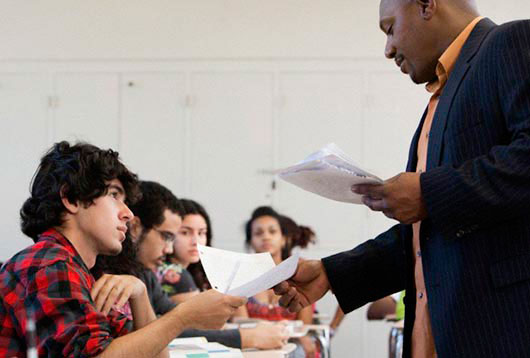
There’s no question that your kids need you to help them prepare for college. The earlier your whole family starts focusing on your children’s college career, the bigger the chances that they’ll attend and graduate college. When you talk to moms who have several generations of college graduates in their families, you find several common denominators in terms of what they do during their kids’ formative years. You can easily take advantage of their experience by adopting several of their strategies.
- Start Early: Moms in the know start guiding their children towards college at an early age. They talk as if there weren’t any options other than going to college. They make sure their kids hear conversations about college and careers. Also, as colleges dig into students’ academic records, supporting your kids’ education early-on is crucial. By the time they reach middle school and high school, your child should be choosing classes and making grades that will appeal to college recruiters.
- Help them choose the right classes: Colleges have certain core requirements for admittance. For instance, you must come out of high school with 4 years of language arts and 4 years of math. Most also require 2 years of a foreign language and 4 years of science, including some lab sciences. Your child’s guidance counselor will be able to help you both determine what classes are required for high school graduation and which will look good on a college application.
- Guide them toward challenging electives: Rather than taking archery as an elective their senior year, push your child to take something that will really stand out on a transcript. Technology courses, advanced math and engineering are always excellent options as they open more opportunities for scholarships and for admission into high demand programs.
- Extracurricular activities: Colleges are interested in what your child does with their “off” time. Things like band, choir, and sports, debate team, technology clubs, and foreign language clubs are good choices. The secret is for your kid to identify and stick to activities they are really interested in rather than getting involved in too many activities and dropping them after a short time. It’s also important for students to demonstrate their leadership in at least one of their chosen activities.
- Encourage kids to join groups where they can meet students with a college tradition: As is natural, students tend to hang out with friends who have similar backgrounds. And although this is a great way to preserve their culture, it may also limit their ability to learn things their immediate family may not be able to help them with. When students participate in activities with students who have a family tradition of graduating from college in this country, they learn the inroads and the tricks of the trade. They will also experience peer pressure of the good kind, as this group of students will all be pushing each other to do well academically, enroll in Advanced Placement courses, prepare for the SATs, etc.
- Volunteer work: Encourage your child to get active within the community. (Many scholarships are based on community engagement and colleges appreciate students who selflessly give their time to help those who are less fortunate.) By volunteering through church or other community organizations, they will gain valuable life and leadership skills. Programs such as Habitat for Humanity, the local Humane Society, or the United Way, always seem to have volunteer needs. Volunteer Match can give you some additional, local ideas where your child’s effort will be greatly appreciated.
- Encourage proper study habits and support their education: By providing a good place for students to study, establishing a specific time for homework and matching your words with your actions, you can show your child that an education is extremely important to you from early on.
There’s little doubt that in the knowledge economy, graduating from college will increase your child’s earning potential, and diminish the likelihood of facing lay-offs that are more common in jobs that don’t require a college degree, (although as in life, there are no guarantees). You play a crucial role in supporting this great achievement. It starts as when your child is a baby and it really doesn’t end until you shed tears of joy on college graduation day at the site of your adult child in cap and gown.










